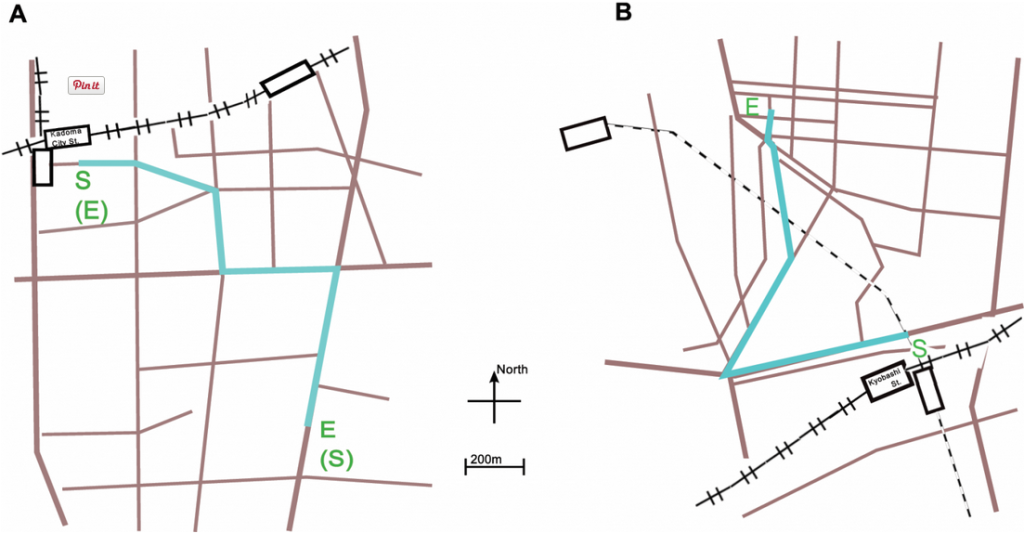Feel Like The Trip Home Is Quicker Than The Trip There? Science Says You’re Not Alone Image courtesy of tjean314
After reading the above headline, you’re probably already saying to yourself, “Yessss I know exactly what that feeling is!” The “return trip effect” is one we’ve all likely experienced — it seems to take a long time to get somewhere — whether it’s vacation, a visit to relatives or a business destination — and a much quicker time to arrive back home again, even though you traveled the same distance. Scientists are on the case to try and explain why we all feel this way.
New research in the journal PLOS ONE (h/t Washington Post) takes a crack at figuring out the return trip effect: Researchers from Japan had study participants sit in a room and watch a 20-minute movie recorded by a cameraman walking around the city. Some subjects were asked to indicate each time three minutes had gone by. They watched two movies and rated which one was longer.
One group watched a round-trip from point “S” to point “E” in image on the left, while the other took two separate one-way trips:from “S” to “E” in the lefthand image, then from “S” to “E” in the righthand image.

(PLOS ONE)
Researchers wanted to look at how we perceive time as it’s happening as well as what we think about that period of time when it’s over. They found that the two groups were about the same when predicting how the time was passing during the movies. But when they thought about the experiment later, those that took the round-trip route thought the second leg was shorter, while the group that went on two one-way trips didn’t feel that effect.
Psychologists have sought to explain this phenomenon in a few ways. One is that it kicks in when you’re paying attention to how time is passing: You’re going to be late in five minutes, but you’re stuck on the train and you’re still five stops away from your destination. Time ticks slowly by, each second thunking against the deadline in your head. But when you’re just on the way to the grocery store and thinking about what you’re going to eat, it doesn’t take that long.
It’s like waiting for the water to boil — it’s not gonna do it while you’re watching (yes, it is, because that’s science, but you get it).
For example, say you’re really, really excited that you’re going on a trip to [X], the place you’ve always wanted to visit and now you’re finally, finally going and you just can’t stop talking about it or thinking about or dreaming about it or planning for it and oh my god you’re so excited.
Heading toward [X] while paying so much attention to it will make it seem like a longer trip than when you’re returning home, forced to leave [X] behind in order to face the real world and your boring, normal existence. You put your headphones on and tune out. Before you know it, you’re home and sad that it’s all over and you reach for the cheese dip.
Another thing that could play into this time warp could be that when we’re visiting somewhere we’ve never been, we don’t recognize sights and scenes on the way. But during the reverse trip, we see things we’re now familiar with, which makes the trip go faster. It’s like, “Hey, there’s that cheese castle we passed on the way here, I remember that.”
How come we don’t feel the return trip effect on our daily commute? Probably because we’ve taken the trip so often that we know exactly how long it will take, a 2011 study suggested, as noted by WaPo. But maybe if you were excited to go to work one morning because you knew it was free doughnut day that day, the journey could seem much longer than your slog home at night.
There are likely many reasons why we feel the return trip effect, and heck, the brain is a complicated thing so we may never unravel the mysteries of time perception. At least you know you’re not the only one.
Want more consumer news? Visit our parent organization, Consumer Reports, for the latest on scams, recalls, and other consumer issues.

